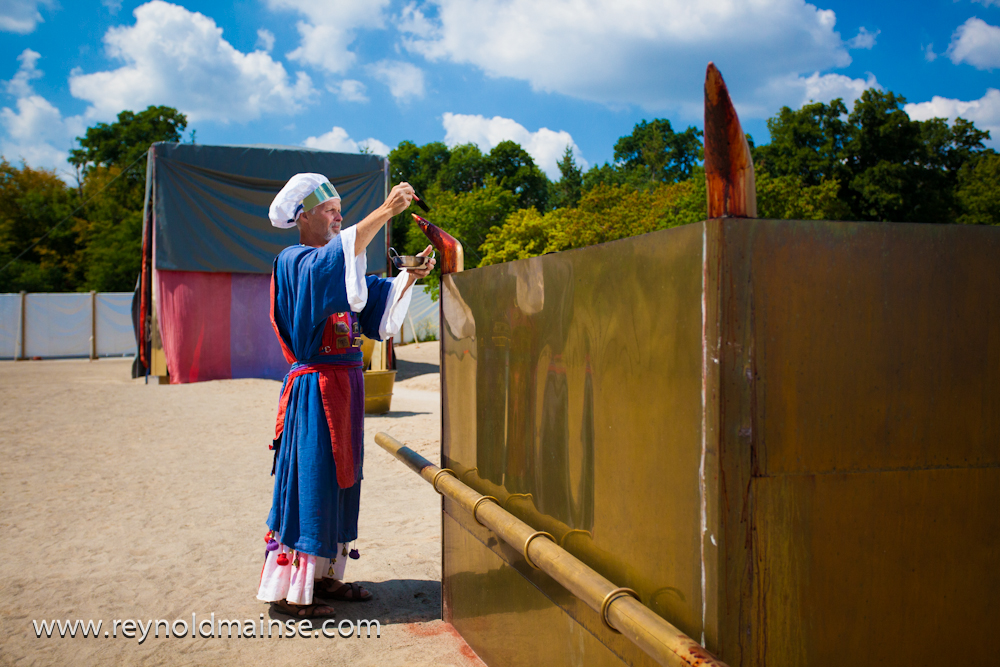Articles
The Horns of the Altar

While God's people today live under the new covenant established by Jesus Christ, the worship of God's people under the old covenant foreshadowed the spiritual realities to come (Hebrews 8:4-6; 10:1). God had specified detailed principles, measurements and patterns to be observed not just in the worship itself, but in the construction of the tent and its contents (Exodus 25:40). This study will focus on one particular detail of one fixture in the tabernacle: the horns on the altars.
Under old law worship, there were two altars on which the priests made sacrifices on behalf of the nation of Israel: the altar of burnt offering (Exodus 27) was in the Holy Place, where animals were sacrificed for the sins of the people, while the brazen altar of incense (Exodus 30) was in the Most Holy Place, before the presence of the name of the Lord. Both of these had horns on their four corners (Exodus 27:2, Exodus 30:3). "What purpose," the inquisitive Bible student may ask, "did these horns serve?"
Atonement for sin. Priests were consecrated for temple service by taking blood from a sacrifice and putting them on the horns of the burnt offering altar (Exodus 29:10-12). Similar actions carried on throughout day-to-day worship services: when a sin offering was made, blood from the sacrificed animal was applied to the horns of either altar, depending upon the situation (see Leviticus 4).
As crimson stains would build up on these horns, the priests and the people would constantly be reminded that they could only be acceptable before God and serve Him perfectly when a blood payment was made. The horns remind the worshiper that we fall short, that there is a price for this failure on our part, and its cost is pricely indeed. Thank God that He has paid the price once for all! (Hebrews 9:23-10:10)
Refuge for the fearful. As King Solomon's reign is established, his rebellious brother Adonijah and his conspirators are put in a fretful situation. After trying to secure the throne for himself, Adonijah is shamed when King David formally passes his rulership to Solomon. It's for this reason that we find Adonijah clinging to the horns of the altar in I Kings 1:50-53. He has fled to the Lord's altar for refuge, knowing that he had acted dishonorably. When he heeds the command of the Lord's anointed ruler, King Solomon spares him. Comparatively, the next chapter finds Joab (a conspirator of Adonijah's) also clinging to the horns of the altar, afraid for his life. However, he doesn't trust the king and is struck down while on the altar (1 Kings 2:28-35).
It's true that God Almighty is a refuge for His people; He is the first we should turn to in any situation, good or bad. However, the contrast between Adonijah and Joab illuminates the nature of that relationship. We must come to God on His terms, and we must cling to Him in full trust and obedience. It's the exact opposite attitude of self-entitlement and assumed spirituality that leads Jehovah-Sabaoth, the Lord of hosts, to cut the horns off the altar as the prophet Amos foretells of Israel's destruction and exile (Amos 3:12-14). God is longsuffering and patient, but we must diligently seek Him while He may be found!
Security of the offering. Psalm 118:27 notes that special feast day sacrifices were bound to the horns of the altar. This ensured that the sacrifice wasn't going anywhere! The animal was dedicated to the task at hand and was as good as offered at this point.
As we seek to live our lives as sacrifices of praise to God for His love (Romans 12:1-2), we cannot afford to become distracted or "test out" other altars we could waste our lives on. Our full bodies must be committed to the altar, with our old man dead and Christ living in me (Galatians 2:20). As God will tell the Romans through the apostle Paul, this selfless kind of life is the only rational response to the overwhelming love of God in Christ Jesus!




